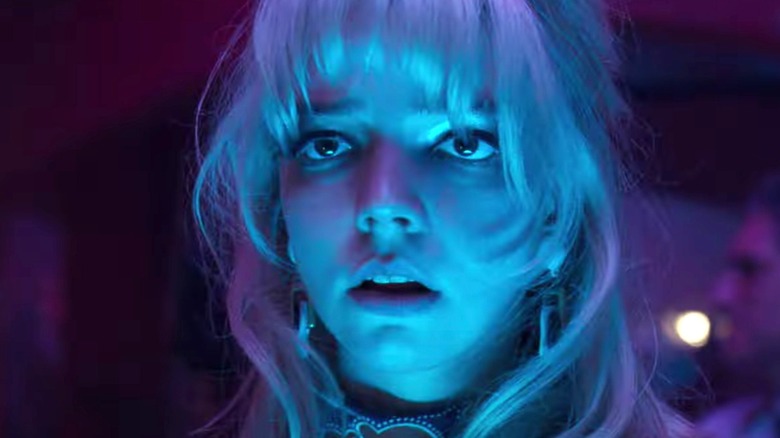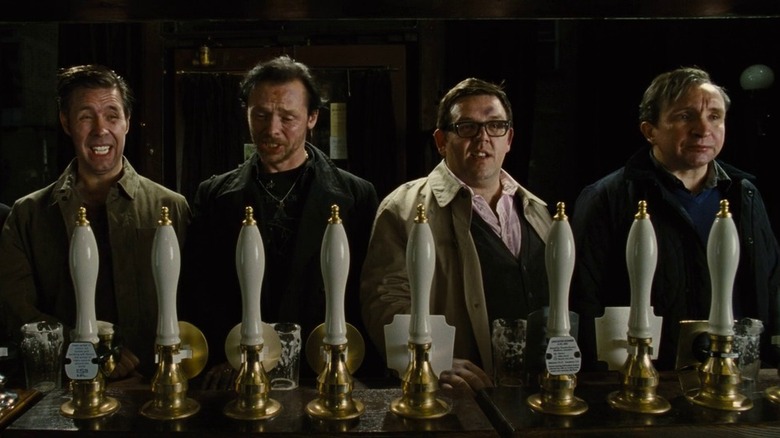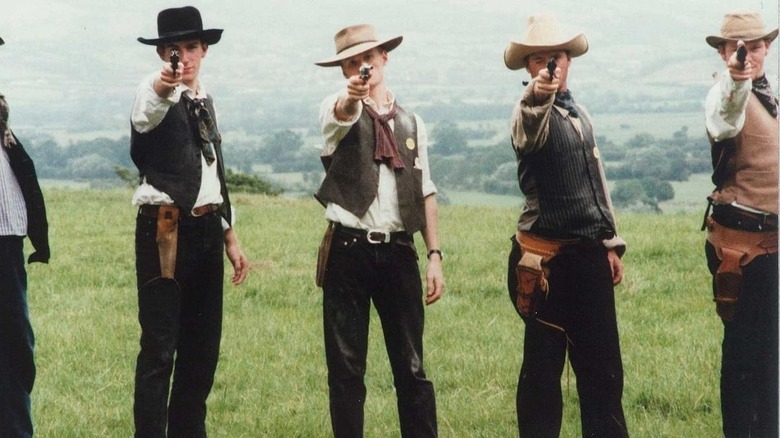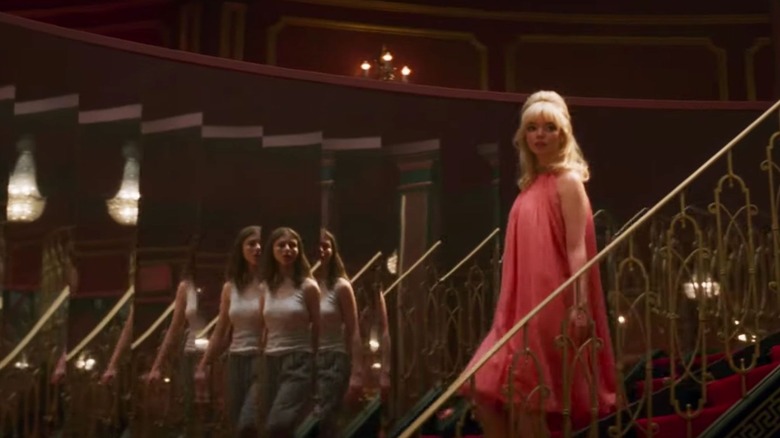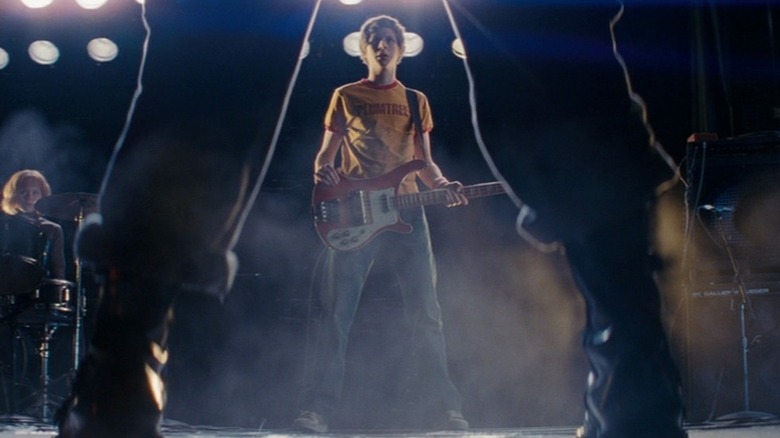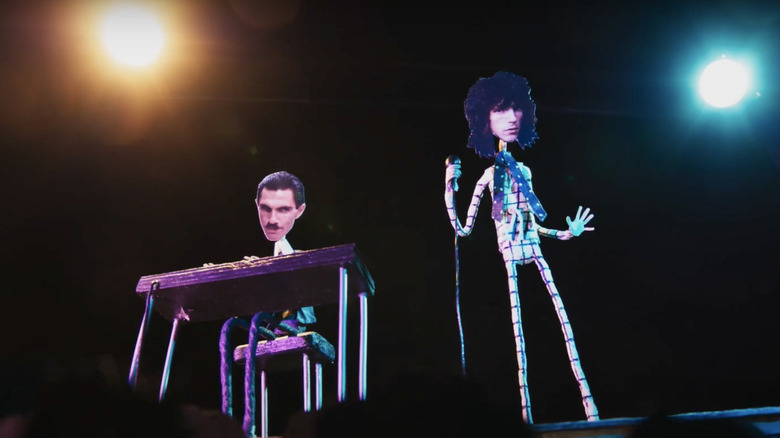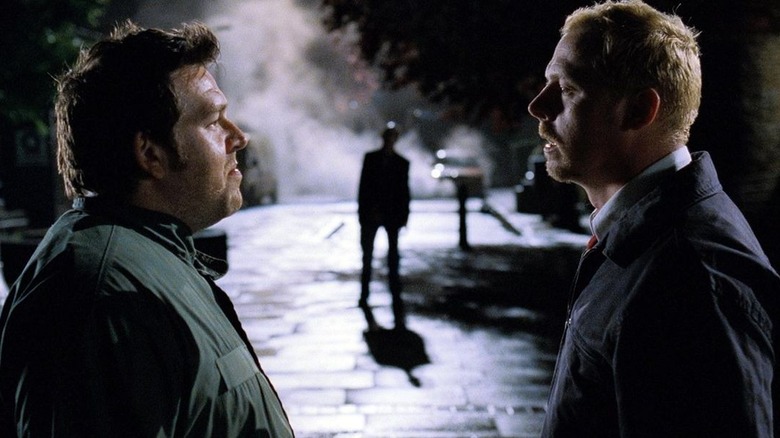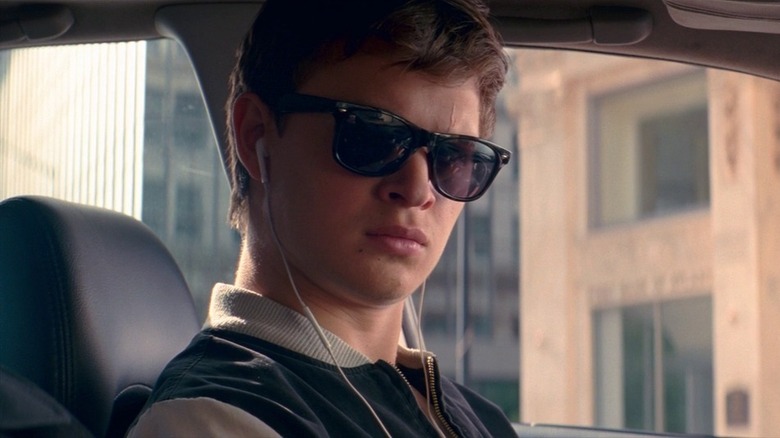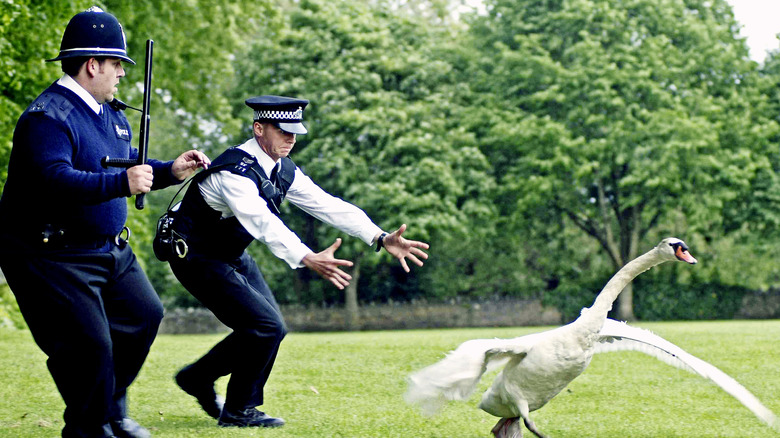Every Edgar Wright Movie Ranked From Worst To Best
For many cinephiles, Edgar Wright's ascent over the past two decades has been particularly gratifying. As he's made the jumps from British TV to cult comedies to full-blown studio filmmaking, Wright's profile — and his budgets — have increased, and yet none of his success has diminished the dynamism of his signature style.
Edgar Wright's love of everything from schlocky B-movies to canonized masterpieces shines through in the affectionate remixes and homages that appear in his own work. But remarkably, Wright's films never feel like a catalog of references meant to make those in the know feel smarter. They don't simply regurgitate or replicate genre tropes, but build on — and interrogate — their legacies.
With Wright debuting two new features in 2021, including his first documentary, the time is ripe to reevaluate the director's filmography. Both "The Sparks Brothers" and "Last Night in Soho" should feel familiar to the director's fans, while still opening up exciting new avenues for Wright to explore. Here's where Wright's 2021 output ranks among his previous work.
8. The World's End
The not-quite-grand finale of Edgar Wright's "Cornetto trilogy" is the director's only film that feels like it loses the thread. Wright frequently marries genre indulgences with potent social messages, encouraging viewers to be more invested in each other than in the minutiae of movie knowledge. Of course, if you squint, you can see this message in almost every action movie, but Wright brings the thematic subtext to the forefront.
The allegory gets a little overblown in "The World's End," an action-comedy that tips over into outright science-fiction. As an estranged group of friends reunites for a pub crawl, they face the only hurdle larger than resetting the time and distance that separates them: a swarm of technologically-minded aliens. The whole thing functions as a commentary about how some technical advances only estrange people from each other and the world around them. It's rather obvious and lacking much depth beyond this surface-level observation, but Wright makes the proceedings enjoyable to watch with a sprinkling of bravura sequences.
7. A Fistful of Fingers
In 1995, young and scrappy 21-year-old Edgar Wright pulled together his first feature, "A Fistful of Fingers." The film is a proudly British parody of spaghetti Westerns, and it leans into all the peculiarity of the concept. Wright cleverly wraps the shoestring budget into the story itself, cheekily incorporating anachronisms that poke fun at the film's own construction. Had he continued down this road, Wright could have become his generation's Mel Brooks.
Yet even at 78 minutes, the film wears out its welcome. The "Monty Python"-inspired humor feels one-note, and the limitations of Wright's craft become more apparent with time. "A Fistful of Fingers" becomes less subversive, and more of a series of winks at the end of well-staged sequences, showcasing Wright's prodigiousness as a filmmaker and his mastery of genre conventions. But this is still a freshman film, and it's evident that Wright lacks the confidence to fully subvert and explode genre in the way that he'd later become famous for. "A Fistful of Fingers" is a fascinating sign of what's to come, even if it's not fully realized in its own right.
6. Last Night in Soho
Following his biggest commercial success, 2017's punchy action flick "Baby Driver," Wright took a turn toward horror and psychological thrills. The resulting film, "Last Night in Soho," is remarkable in the way that it both features that unmistakable Edgar Wright touch and also subsumes Wright's hallmarks in a less overtly playful story. The dueling sensibilities do not always mesh seamlessly, but it's exciting to see a director of Wright's stature try something different.
Wright isn't just experimenting with style but also with substance; in "Last Night and Soho," Wright creates his first female protagonist. Thomasin McKenzie's Eloise, a small-town fashion student drawn to the glitz and glamour of London's swinging '60s, finds herself able to access the period through Anya Taylor-Joy's alluring singer, Sandie. Like many Edgar Wright films, the overlap between the two characters serves as both a celebration of culture and a warning to not let it become all-consuming. Even though the giallo trappings of "Last Night in Soho" do not feel like a natural a fit for Wright, it's still riveting to watch a movie that complicates and challenges the very concept of what an Edgar Wright film is.
5. Scott Pilgrim vs. the World
Wright's most kinetic movie is his graphic novel adaptation "Scott Pilgrim vs. the World," an imaginative action-romance in which Michael Cera's titular hero must do battle with his new flame's seven evil exes. More than simply mimicking the look and style of a video game, Wright transposes gaming's visual and narrative logic into a feature film format. Not every bit of trickery works, and the film's quirky sensibility can be overwhelming. And yet, it's exciting to watch Wright take big swings, and to see him connect on a good number of them.
If nothing else, simply marvel at how well Wright cast the film, anticipating the stratospheric ascent of performers like Brie Larson, Aubrey Plaza, and Mary Elizabeth Winstead, and knowing how to use actors like Chris Evans and Kieran Culkin to their full potential years before they took their signature roles. "Scott Pilgrim vs. the World" is also probably peak Michael Cera, debuting at a time when Cera's pouty persona was laughable but not yet a punchline. As Scott, Cera is pathetic enough to sell the jokes, but heroic enough to be a believable action lead, at least within the parameters set up by the film.
4. The Sparks Brothers
There is absolutely no reason why "The Sparks Brothers" should work, given that it adopts such conventional format: a Wikipedia-like chronological run-through of its subject. That Edgar Wright manages to transcend the limitations of the form speaks volumes about his style and his sensibility. It's rare that a film made by a fan-club president — with some help from many other high-profile devotees — does anything other than preach to the choir. Here, Wright actively seeks converts to the tribe of Sparks, and does so by offering a welcoming hand, not posturing as one of the cool kids. Admittedly, he made a believer out of me.
Sure, Wright could probably have trimmed some fat from this 140-minute feature. It's a truly comprehensive document of Ron and Russell Mael's eccentric musical genius, expressed through their group, Sparks. But Wright makes the case for the documentary's length by showcasing the jaw-dropping variety of the styles in which Sparks dabbled. Wright doesn't just take the brother's brilliance for granted, but instead makes a compelling case for their canonization. He's also clearly influenced by Ron and Russell as well, incorporating their rebellious and rambunctious spirit into the film itself.
3. Shaun of the Dead
Wright burst onto the scene in 2004 with "Shaun of the Dead," a mash-up of genre deconstruction and social commentary that takes the form of a zombie comedy. The film takes high-concept hijinks — Simon Pegg's aimless titular character manages to sleepwalk through the zombie apocalypse occurring around him — and amps up the ridiculousness, even while keeping events grounded. Leave it to Edgar Wright to find a way to marry the madcap and mundane.
Filmmakers should naturally grow and improve as they make more movies, yet it's quite astonishing to see just how fully-formed Edgar Wright's style was from the jump. While he's honed many of the elements introduced in "Shaun of the Dead," none of that detracts from the joy of seeing Wright realize his singular vision for the first time. A devilish wit runs through the film, and a number of its gags and sequences would scare off more seasoned filmmakers. But Wright just seems excited to be making a feature-length movie, lending "Shaun of the Dead" a vibrancy that none of Wright's later accomplishments will ever fully diminish.
2. Baby Driver
Edgar Wright called his shot in an early draft of "Baby Driver," claiming that music was so central to the film that it would get an Oscar nomination for sound. He was right — the film that vaulted Wright out of cult fandom and into the mainstream is such a technically precise piece of work that the Academy could not deny its mastery. "Baby Driver" hums like a fine engine revving up, accelerating from 0 to 100 miles per hour with the smoothness of a seasoned pro.
At long last, Wright had all the resources at his disposal to make the kind of big, brassy blockbuster that knocked his socks off as a young cinephile. Now, aspiring filmmakers will hold "Baby Driver" in a similar regard. Wright conducts sound and image like a symphony as he follows the adventures of Ansel Elgort's getaway driver, Baby, who attempts to leave organized crime behind to pursue the girl of his dreams.
The film is a more of an exercise in style and storytelling than the usual Edgar Wright film; it doesn't have much more on its mind than the power of music. But that's only a concern that pops up when looking at "Baby Driver" in the rearview mirror. While watching, it's a pulse-pounding ride that keeps perfect rhythm.
1. Hot Fuzz
All of Wright's strengths as a director come together seamlessly in "Hot Fuzz." His go-to duo of Simon Pegg and Nick Frost is in top form for this buddy cop comedy, playing an odd pairing in an overzealous sergeant Nicholas Angel (Pegg) and the decidedly less ambitious Danny Butterman (Frost). The rule-abiding Angel makes a fuss in the small town of Sandford, while native son Danny takes his cues on how to perform police work from action movies. Together, their absurd antics play like a gleeful send-up of the cop movie genre, which Wright replicates in startling aesthetic detail just so that he can affectionately poke fun at it.
But Wright does more than satirize the genre. Yes, he comments on and criticizes the inanity of action movies, but he also digs deeper, finding a darker truth lurking underneath: The idyllic small town so often presented in police procedurals is often a hotbed for dangerous insularity. Rather than leaving this as subtext, Wright elevates it to a central plot point in ways that are both startling and satisfying. Wright isn't picking on the action genre so much as picking it apart, laying the framework bare so that other filmmakers can build even smarter structures on top of it.
